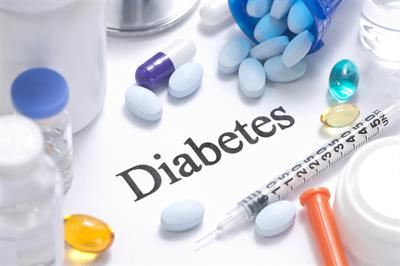The Relationship Between Cancer and Diabetes
June 14, 2017 | Author: BeatCancer.Org
Scientific studies suggest there is a common link between cancer and diabetes that is related to sugar. Research suggests people who have diabetes have a higher risk of developing various forms of cancers.1 Sugar plays a vital role in how our bodies process nutrients needed for energy and how our cells are fed.
How sugar and cancer and diabetes are related is not necessarily related to consuming sugar but in the amount, type, and side effects of consuming too much. Consuming large amounts of sugar can lead to obesity. Being overweight has been linked to several forms of cancers,1 namely:
- Breast
- Kidney
- Liver
- Colon
- Rectum
- Gallbladder
- Pancreas
- Endometrium
- Adenocarcinoma of the esophagus
Furthermore, obesity is a common cause of insulin overproduction, common in adults with Type 2 diabetes. With Type 2 diabetes, the body produces too much insulin. These higher levels of insulin have been found to contribute to the growth of certain cancerous tumors.2
While not as well researched, there have been some studies conducted on the link between Type 1 diabetes and cancer. Type 1 diabetes is where the body is not producing enough insulin or any at all. It most commonly occurs in children and adults under the age of 30.3

Two cancers that present increased risks in Type 1 diabetes patients are stomach cancers and cervical cancers.2 These are different from cancers associated with Type 2 diabetes. However, it should be noted that if a person with Type 1 diabetes becomes obese, then the risk of other cancers is also significantly increased.
Sugar’s Role in Cancer and Diabetes
While there are definitely many common risk factors shared between Type 2 diabetes and various forms of cancer, one thing researchers do not yet fully understand is whether there are any potential biological links1 that would further support this relationship.
Glucose, a basic form of sugar found in the foods we eat, is what provides all of our cells with fuel and energy required to remain healthy.4 Research has found cancer cells thrive on sugar, especially processed sugars like high fructose corn syrup and white sugar5—typically found in sodas and fruit juices.
Cancerous cells tend to consume sugar at a rate 10 to 12 times faster than normal healthy cells, resulting in cancer growth. Another key factor is that sugar is acidic and cancerous cells thrive in acidic environments.6 In addition, when we consume sugar, the pancreas releases insulin into the body.
Insulin and insulin-like growth factor (IGF) receptors are found in most cancer cells. When there is too much insulin released, not only does this lead to Type 2 diabetes, but insulin also stimulates cell growth and could be causative of cancers, including prostate, pancreas, endometrium, and breast.5 Furthermore, when people are obese, this condition enhances the direct effects of insulin production, Type 2 diabetes, and progressions of malignant tumors and cancerous cells.
While there are still many unanswered questions, current research findings do suggest some common links between cancer and diabetes directly related to sugar intake and insulin production. For more information about cancer prevention and treatment and living with cancer, please feel free to browse our website further, or contact the Center for Advancement in Cancer Education at 1-888-551-2223 today!
Join the conversation: Ask Holistic Cancer Coach Facebook Group
Sources
- https://www.ncbi.nlm.nih.gov/pmc/articles/PMC2890380/
- https://www.diabetes.co.uk/diabetes-complications/diabetes-and-cancer.html
- https://www.cancercenter.com/integrative-care/nutritional-support
- https://news.cancerresearchuk.org/2020/10/20/sugar-and-cancer-what-you-need-to-know/
- https://beatcancer.org/blog/5-reasons-cancer-and-sugar-are-best-friends/
